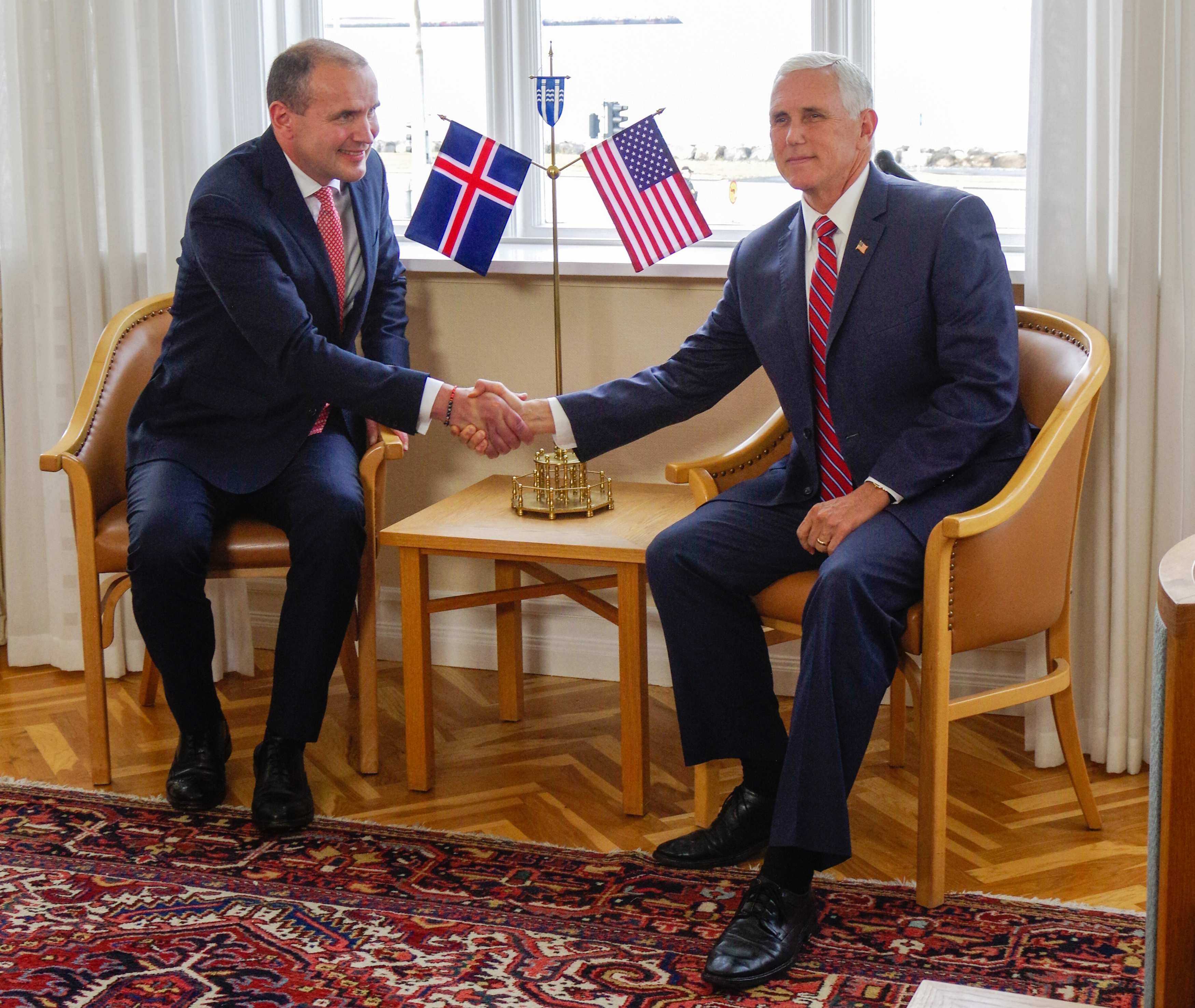In Iceland visit, Pence says China and Russia are increasingly active in the Arctic
Pence also commended Iceland for its cooperation on security issues.

REYKJAVIK — U.S. Vice President Mike Pence said during a visit to Iceland on Wednesday that Russia and China were increasingly active across the Arctic region and praised Reykjavik for its security cooperation.
Amid growing divisions in the polar region over melting ice and access to minerals, the United States has expressed concerns that Russia is behaving aggressively in the Arctic and said China’s actions there have to be watched closely as well.
“We commend Iceland’s coast guard and we are grateful for the security cooperation and presence of U.S. forces in and out of Iceland,” Pence said after meeting Icelandic President Gudni Johannesson in Reykjavik.
Johannesson, who met Pence at Hofdi House, scene of a historic 1986 summit between U.S. President Ronald Reagan and Soviet leader Mikhail Gorbachev, said all nations should try to avoid a scramble for the region.
President Donald Trump cancelled a visit to Denmark last month after Copenhagen rebuffed his idea to buy Greenland, an autonomous Danish territory rich in natural resources.
During a visit by Secretary of State Mike Pompeo in February, Iceland and the United States agreed to set up formal economic channels to boost trade and business investment.
At a meeting with Pence on Wednesday, Iceland’s Foreign Minister Gudlaugur Thor Thordarson reiterated the need for closer ties.
“It is no secret that I would like to explore a free trade agreement with the United States,” he said. “I hope that with your support, we can open a new chapter of U.S.-Icelandic cooperation.”
Iceland’s location in the North Atlantic Ocean between Norway and Great Britain on one side and Greenland on the other side makes it geopolitically important amid increased interest in the Arctic, which has big reserves of oil, gas, gold, diamonds, zinc and iron.
With polar ice melting because of global warming, the Arctic may offer world powers new shipping routes — and naval interests — for trade between Asia, Europe and America’s east coast.
Reporting by Alexandra Alper in Reykjavik; Writing by Stine Jacobsen and Jacob Gronholt-Pedersen.